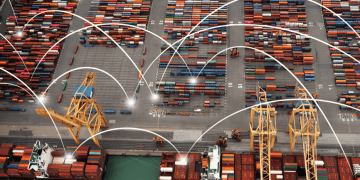The global Transportation Management Systems (TMS) market is poised for considerable growth in the forthcoming years, with projections indicating that it will attain a valuation of $31.9 billion by 2028. This growth is largely attributable to the escalating demand for efficient logistics and transportation solutions across various industries.
TMS facilitates the planning, execution, and optimization of the physical movement of goods and is becoming indispensable for enterprises aiming to enhance supply chain efficiency. Factors such as the proliferation of e-commerce, the necessity for improved cost management, and a heightened emphasis on sustainability are pivotal in propelling this market expansion.
As businesses encounter challenges including volatile fuel prices, labor shortages, and rising customer expectations, the adoption of advanced transportation management solutions is anticipated to yield significant improvements in operational efficiencies. Prominent players in the TMS sector continue to innovate by integrating artificial intelligence, machine learning, and automation to develop more intelligent systems that can forecast, analyze, and optimize transportation routes in real-time.
The North American region is expected to retain its leading position in the global market, driven by rapid integration of cloud-based TMS solutions and a strong focus on technological advancement. Nevertheless, considerable growth is also forecasted in regions such as Asia-Pacific, where rising industrialization and the expansion of e-commerce are stimulating the demand for more effective logistics systems.
In addition to bolstering operational efficiency, TMS platforms are increasingly being synchronized with other enterprise systems, such as warehouse management and enterprise resource planning (ERP) systems. This integration allows businesses to attain enhanced visibility, streamline processes, and improve decision-making capabilities.
Looking forward, the TMS market will continue to evolve, with emerging trends such as the adoption of blockchain technology to enhance transparency and security within the supply chain. As companies aim to mitigate the ramifications of supply chain disruptions, TMS solutions will play an instrumental role in enabling them to remain agile and responsive in an increasingly intricate transportation landscape.
Get the latest supply chain logistics news updates at The Supply Chain Report. Visit ADAMftd.com for free tools related to international trade.
#TransportationManagementSystems #TMSMarketGrowth #SupplyChainEfficiency #LogisticsSolutions #EcommerceLogistics #CostManagement #SustainabilityInSupplyChain #AIInTransportation #MachineLearningInTMS #AutomationInLogistics #CloudBasedTMS #ERPIntegration #BlockchainInSupplyChain #TransportationInnovation #SupplyChainOptimization #AIForLogistics #NorthAmericaTMS #AsiaPacificLogistics #TransportationTechnology #FuelPriceChallenges #LaborShortages #CustomerExpectations #LogisticsAutomation















